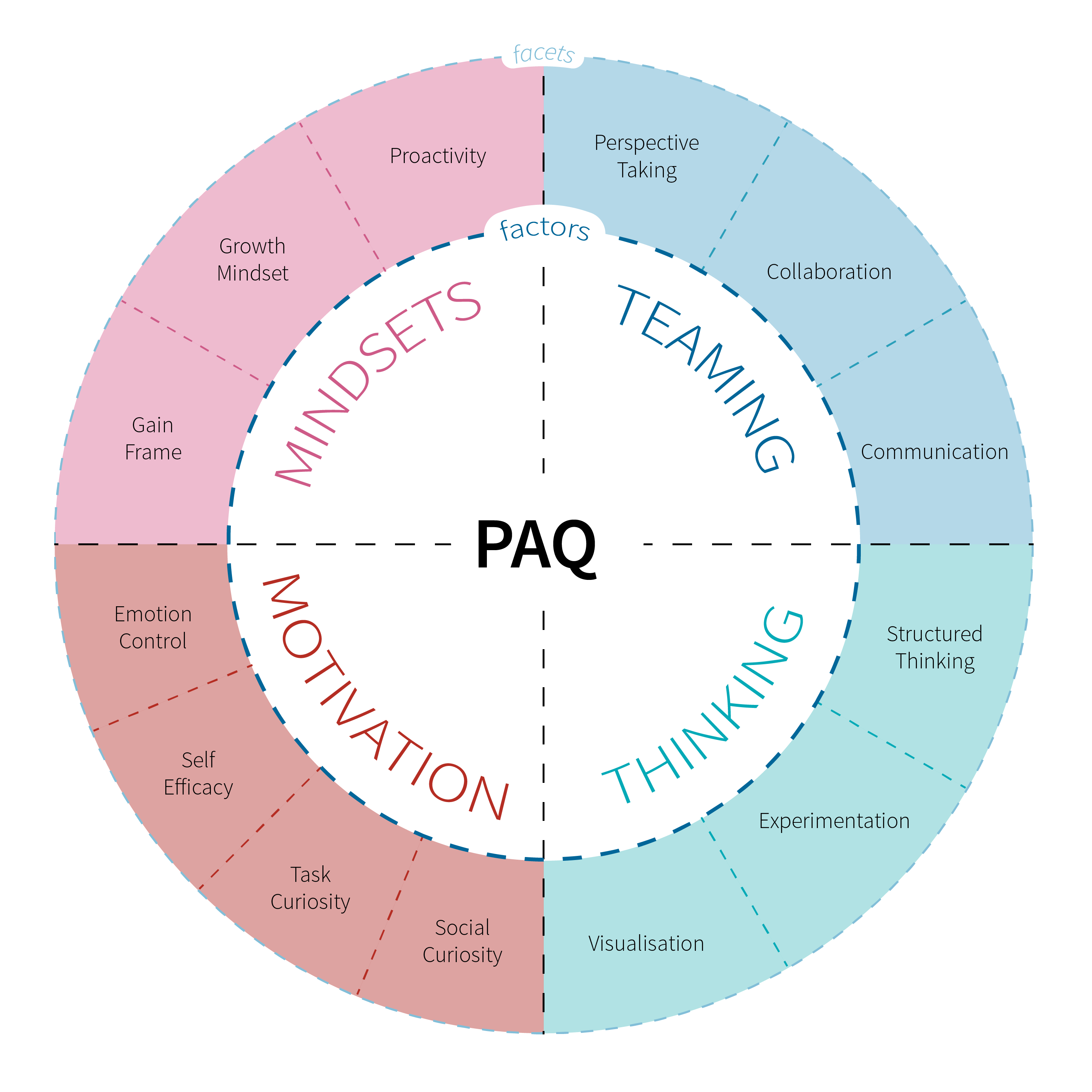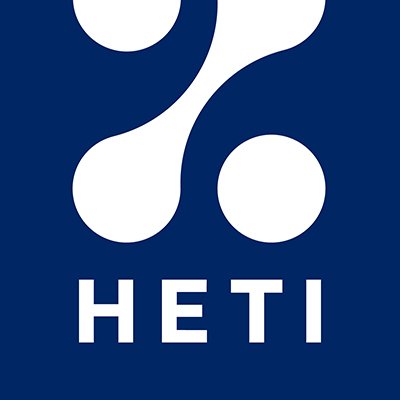The Power of Social Curiosity and Empathy in Effective Leadership
In order to motivate people, a leader must understand them.
Understand the fundamental psychological factors driving your ability to navigate change and growth.

The Personal Adaptive Quotient (PAQ) is an assessment designed to evaluate the fundamental psychological principles that drive adaptability.
The PAQ breaks adaptability into 4 factors and 13 facets, offering a comprehensive framework that highlights the interplay between an individual's psychological attitudes, internal drive, and social skills.
The PAQ stands out by focusing on dynamic, controllable factors rather than fixed traits, viewing every facet as an opportunity for growth. This approach promotes a mindset of potential for change and improvement in every individual.
With actionable steps for each of its facets, the PAQ provides a clear, targeted roadmap for personal development, enabling individuals to pinpoint and enhance specific areas of strength and improvement. It’s a foundation for building specific, actionable strategies for growth.
Expanding beyond individual assessment, the PAQ includes elements aimed at enhancing teaming and collaboration, addressing how individuals can overcome complex challenges together. It emphasizes the importance of a collective approach in navigating team dynamics and achieving common goals.
The PAQ framework is broken down into Mindsets, Motivation, Thinking and Teaming to provide a holistic view of adaptability, capturing the complex interplay between an individual's psychological attitudes, internal drive, cognitive processes and social collaboration skills. This segmentation allows for targeted insights and strategies, enabling precise development of adaptability in professional settings, essential for thriving in today's dynamic work environments.
Mindsets are the intuitions, perceptions, mental models and assumptions that shape and bias judgements, often unconsciously. Mindets influence engagements with tasks, persistence and interpretation of feedback as motiviating or demotivating.
Motivation includes the drivers of engagements, focus and persistence on adaptive tasks, including self-beliefs, emotional regulation, and curiosity. Motivation leads to the channeling of effort into effective problem solving, continuous learning and continuous improvement.
Thinking is the set of capabilities used in the search for, processing and organisation of information. It includes the analytical methods, tools and mental models used to focus, search and collect data and the analysis of synthesis of information. The thinking processes may be conscious and/or subconscious.
Teaming is the process of working through adaptive challenges with others, and includes behavious that enable effective engagement amongst team members during problem solving. These behaviours include taking other perspectives, collaboration and clear communications.
Beyond fixed personality traits
The PAQ illuminates the dynamic nature of adaptability, offering a clear pathway to understanding and enhancing your own.
Unlike static personality assessments the PAQ measures factors that are in your control and can be improved.
Adaptability is complex, it encompasses how we think, make decisions, collaborate, and bounce back from setbacks. That's why the PAQ breaks it down into its fundamental psychological components
The PAQ doesn't just assess; it illuminates. By breaking down adaptability into tangible factors—Mindsets, Teaming, Motivation, and Thinking—it provides a clear picture of where you stand on the adaptability spectrum.
The PAQ report gives you are clear picture of your strengths and weaknesses which allows a targetted and deliberate pathway to growth.
Partnering with Global Leaders to Foster Adaptability and Growth





In order to motivate people, a leader must understand them.
Exploring the edges of curiosity, navigating the path from inspiration to intrigue.
In an era where change is the only constant, leaders are recognizing the power of adaptability not just as a skill, but as a core component of successful leadership.
FAQs
Dive into the following questions to gain insights into the powerful features that AstroWind offers and how it can elevate your web development journey.
The PAQ (Personal Adaptive Quotient) Assessment is a tool designed to measure your adaptability in professional environments. It evaluates how well you adjust to change, face challenges, and leverage opportunities, providing insights into your adaptability strengths and areas for improvement.
To take the PAQ Assessment, simply reach out to us through our contact form or email. We'll send you a unique link to the survey, which you can complete at your convenience.
The PAQ Assessment typically takes about 15 minutes to complete, depending on your pace. It's designed to be thoughtful and engaging, ensuring a comprehensive evaluation of your adaptability skills.
After completing the PAQ Assessment, you'll receive a detailed report via email. This report includes personalized feedback on your adaptability quotient, highlighting your strengths and pinpointing areas for growth, along with actionable strategies to enhance your adaptability.
Absolutely! The PAQ Assessment is designed for both individuals and teams. It can provide valuable insights into team dynamics, help identify areas for development, and foster a culture of adaptability within organizations.
Unlike traditional personality assessments that focus on static traits, the PAQ Assessment specifically measures adaptability—a dynamic and critical skill for success in today’s fast-paced world. It provides actionable insights tailored to helping you navigate and thrive in changing environments.
Reach out to us today to unlock your adaptability potential and take the first step towards transformative professional growth with the PAQ survey.